Brown lawns loom this summer in California
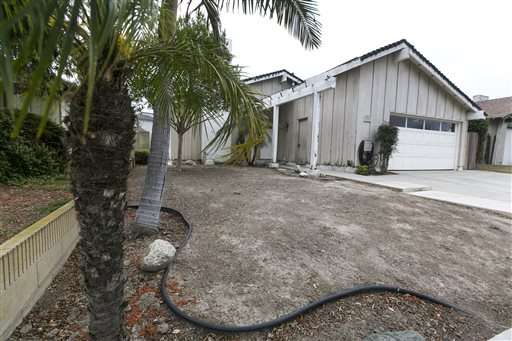
It was with more hope than accuracy that the founder of this Orange County city picked the name Garden Grove in 1874 for what was little more than an open plain under the Southern California sun.
More than a century later, this sprawling middle-class suburb of 175,000 people could struggle to live up to that name.
In Garden Grove and other communities across the state, residents can expect to see their gardens shrivel and lawns go brown this summer as mandatory water-conservation rules take effect amid California's punishing four-year drought.
State regulators Tuesday ordered communities to slash water use anywhere from 8 to 36 percent, with the goal of cutting overall consumption by one-quarter. And since nearly half of residential water in California goes to lawns, turning off sprinklers will be one of the first orders of business.
"We can meet these targets by putting the lawns on a water diet now," said Felicia Marcus, head of the State Water Resources Control Board.
Still, in Garden Grove and other places rich and poor, people who paid dearly to make their lawns beautiful are loath to say goodbye to the grass.
Last summer, Garden Grove residents used even more water than usual after Gov. Jerry Brown asked people to voluntarily conserve. And while the city has banned watering lawns during the day, it sends fewer than a dozen notices a month to violators.
Reaching the city's mandatory new target of cutting water use by 28 percent is doable but will require "a cultural change" in a community wedded to green yards in the front and fruit trees and vegetable gardens in the back, said William Murray, Garden Grove's public works director.
"You are talking about a huge change that needs to be made, and unfortunately in a significantly short period of time," he said.
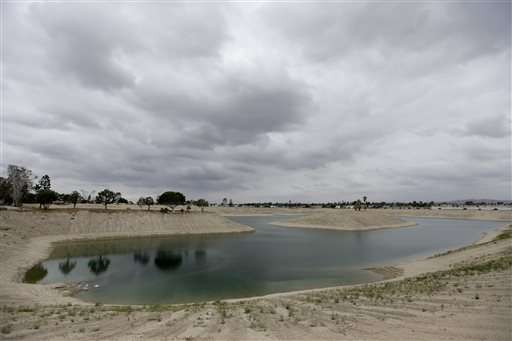
At least one tree-lined street in Garden Grove shows the path to conservation. Lawns have been allowed to turn yellow, and some of the greenest yards are artificial turf, made possible by the city's recent easing of restrictions against fake grass.
"I used to have the greenest grass in the whole neighborhood," boasted Mike Meza, a 36-year-old longshoreman who said he misses gardening with his sons. "Lately we've just been letting it go."
He has scaled back watering to twice a month, tells his kids to keep their showers to four minutes and bangs on the bathroom door when his 14-year-old takes too long.
Garden Grove was a farming community in its early years, then took part in the housing boom that followed World War II. Much of the city is lined with suburban tract homes.
More recently, officials have encouraged development of hotels catering to tourists visiting nearby Disneyland, and a big indoor water park and resort is under construction and expected to open early next year.
Because of the drought, rules against artificial turf are being rolled back around the state, and laws have been passed to make it easier to create drought-friendly landscapes of rocks, cactus and other water-stingy plants.
One of the largest water providers in Southern California recently doubled a rebate program encouraging homeowners and golf course owners to rip out grass, receiving a resounding response.
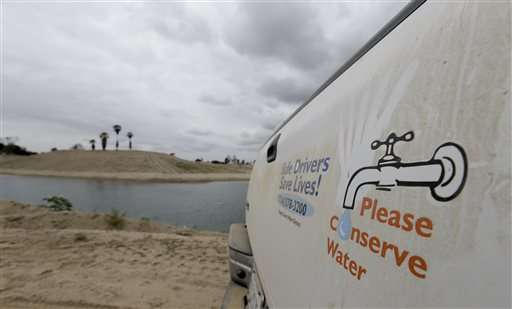
"That doesn't mean getting rid of lawns everywhere. It means keeping them only where they are useful, not just as an ornament, but a place for kids to play, to have a picnic, to have dogs run around," said Ellen Hanak, director of the water policy center at the Public Policy Institute of California.
Discover the latest in science, tech, and space with over 100,000 subscribers who rely on Phys.org for daily insights. Sign up for our free newsletter and get updates on breakthroughs, innovations, and research that matter—daily or weekly.
The water resources board is empowered to enforce drought restrictions but has so far opted not to use its authority to issue fines of up to $10,000 a day for cities that don't comply. State regulators say cities like Garden Grove can learn from other communities that have made big cutbacks.
For example, Santa Cruz residents who overwater their lawns or fail to fix leaks are sent to "water school," in the same way that bad drivers have to go to traffic school.
Sacramento has deployed dozens of city employees to warn residents who water their lawns on the wrong day, and residents are encouraged to inform on their neighbors.
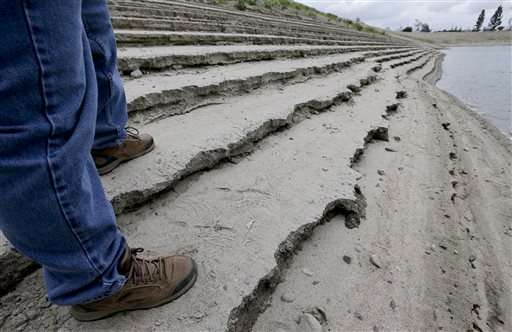
The state government is also ramping up programs to reduce water use. Lawn removal programs and rebates for customers who replace water-guzzling faucets and household appliances are expanding under an executive order by the governor.
-

Gov. Jerry Brown speaks at the Association of California Water Agencies conference in Sacramento, Calif., Wednesday, May 6, 2015. State regulators Tuesday ordered communities to slash water use by as much as 36 percent. (AP Photo/Rich Pedroncelli) -
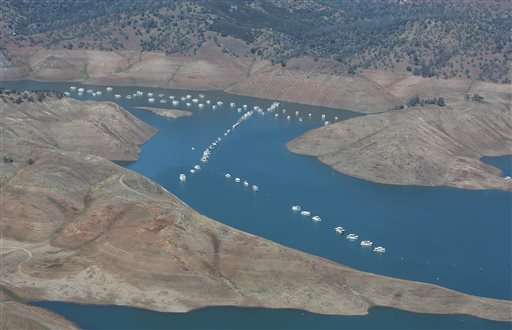
In this aerial photo taken Tuesday, April 28, 2015, house boats sit in the receding waters of Lake McClure in Mariposa County Northeast of Merced, Calif. The State Water Resources Control Board is considering sweeping mandatory emergency regulations to protect water supplies as water levels as some of California's lakes and reservoirs continue to decline. (AP Photo/Rich Pedroncelli) -
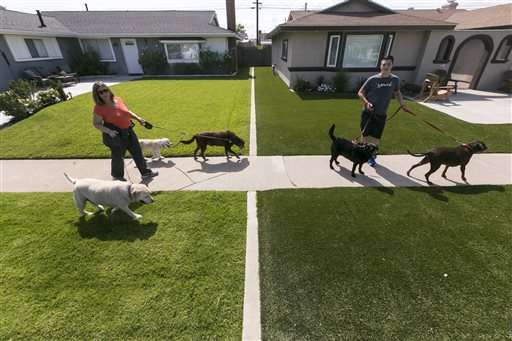
Local resident Martha Mattison, left, helps out her son Jacob, 14, with his dog walking business as they walk past recently installed synthetic grass, seen at right, in Garden Grove, Calif., Wednesday, May 6, 2015. California water regulators have imposed unprecedented mandatory water cutbacks. Today, homeowners in Garden Grove could see their gardens shrivel as mandatory water-conservation rules take effect amid a punishing, four-year drought. (AP Photo/Damian Dovarganes)
© 2015 The Associated Press. All rights reserved.




















